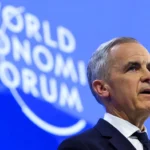
China strengthens its control over strategic technologies, affecting the production of batteries and critical materials, while it aggravates the tension with the US and Europe
Beijing is squeezing its control over Chinese cutting -edge technology, aiming to maintain critical knowledge within its borders as commercial tensions with the US and Europe increase. Chinese authorities in recent months have made some engineers and equipment out of the country difficult, have proposed new export controls to retain key battery technologies and advanced to restrict technologies to process critical minerals, according to various industry figures and ministerial warnings.
According to the Financial Times, the safeguarding of leading technologies by China occurs amid additional tariffs imposed by US President Donald Trump, and a commercial dispute with Europe on cars, which threatens to encourage more local and foreign groups to transfer production elsewhere. Among the affected companies is Foxconn, Apple’s main partner, which led the diversification of the Silicon Valley Group supply chain in India.
People familiar with the issue said Chinese employees have made it difficult for the Taiwanese property -hired manufacturer to send Chinese machines and technical managers to India, where Apple is eager to build its supply chain.
A manager of another Taiwanese electronic company said they were also facing challenges to send some China equipment to factories in India, although he noticed that shipments to Southeast Asia remained normal.
An Indian officer claimed that China was using customs delays to prevent the flow of components and equipment to the south. “Participants in the electronic industry supply chain were informed not to establish manufacturing and assembly operations in India,” said the officer, asking not to be appointed. Rest of World media site previously reported some of Foxconn’s problems.
Analysts say that the emerging manual of Beijing resembles the restrictions of transfer of western technology that criticized as unfair. Informal controls, in particular, seem to aim at China’s geopolitical rival, India, with some Chinese groups saying that projects in Southeast Asia and the Middle East remain unchanged.
But Beijing is also increasingly launching formal export restrictions on key technologies that apply worldwide.
“A strong supply chain and qualified workforce are some of the few advantages that China still has today,” an investor said in a company facing problems to move some technical engineers abroad. “You don’t want to lose it to other countries.” China’s Ministry of Commerce proposed restrictions on the export of technologies related to lithium extraction and the manufacture of advanced batteries materials, both areas where the country has leadership position.
“China is developing a large export control muscle and being quite deliberate in what it chooses to control,” said Antonia Hmaídi, senior analyst at the Mercator Institute for China Studies. “Fundamentally, it is about keeping China Central in global supply chains.” HMAIDI said Beijing frequently aims areas near the top of the supply chain where Chinese groups control materials and technological processes, leaving final products without control.
Cory Combs, from Trivium China consultancy, said the interventions Beijing presented in the battery supply chain represent “a new class of export controls.”
If adopted in full, the restrictions could prevent China battery giants with factories in Europe from moving its entire supply chain abroad. Groups like CATL may need to continue importing battery materials, such as advanced iron phosphate and lithium (LFP) cathodes from China, instead of being able to produce them locally, according to an informed person on the subject .
Chinese advances in LFP technology have sustained the rise of their batteries groups, shifting the South Korean and Japanese groups, who once dominated the battery industry. Trying to follow, Korean groups began partnering and buying LFP cathodes from China, which last year produced 99% of all LFP cathode active materials, according to Benchmark Mineral Intelligence.
New controls can threaten these agreements. A spokesman for one of the leading Korean battery producers, who asked his company not to be named, said he reported his concerns to the Chinese Ministry. “We cannot rule out some adverse effects in our partnership with a Chinese company if the guidelines do not reflect our concerns,” the person said.
Sam Adham, Battery Research Chief in raw analysis company Group, said: “Koreans need high quality Chinese technology, but [com os novos controles de exportação] They can only access last year’s technologies – that is, what is on the roads at the moment. ”
Outlined barriers to lithium extraction technology exports can complicate US -on -the -way developments to South America. A person close to CATL said the group will need to request export licenses to use Chinese technology in a US $ project 1.4 billion in Bolivia to extract lithium from the country’s salars.
Anna Ashton, founder of China Ashton Analytics consultancy, said pioneer Chinese groups have developed technology to extract rich waters in great depth lithium, making many new mining projects viable. “Ironically, hiring Chinese companies is currently the most efficient means of bringing non -Chinese sources of mined lithium and processed online,” she said.
In strategic materials and minerals, Beijing gradually expanded his restrictions to include both key export control-such as lands, tungsten and tellurium, among others-as to the restriction of technologies used for their extraction, refining or processing. In December 2023, China further expanded controls, to technology and processes that transform refined rare lands into permanent metals and magnets used into electric vehicles, wind and electronic turbines.
“China manufactures something like 95% of the world’s permanent magnets,” a US group official said building an alternative supply chain. “The net effect of these export controls is that industrial diversification in some of these supply chains is limited.”
The China Ministry of Commerce did not respond to a commentary request. Foxconn and Catl refused to comment.
Source: https://www.ocafezinho.com/2025/02/17/a-guerra-comercial-esconde-um-segredo-como-pequim-controla-a-tecnologia/

